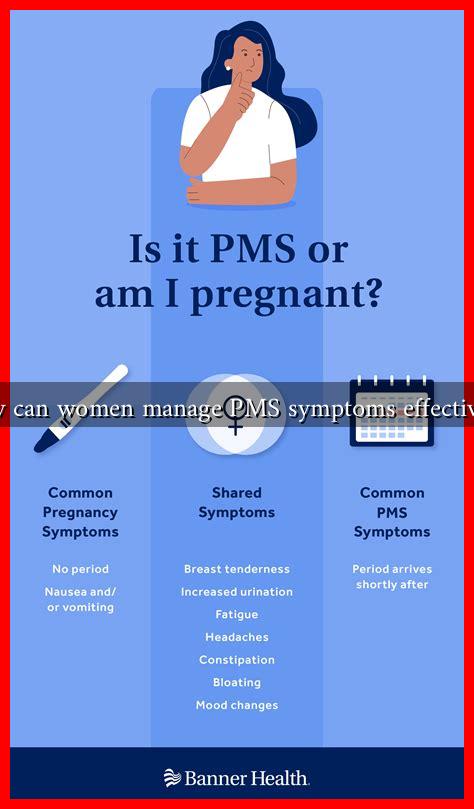-
Table of Contents
How Can Women Manage PMS Symptoms Effectively?
Premenstrual Syndrome (PMS) affects a significant number of women, with studies indicating that between 50% to 80% of menstruating women experience some form of PMS. Symptoms can range from mild to severe and may include mood swings, bloating, fatigue, and irritability. Managing these symptoms effectively is crucial for maintaining quality of life. This article explores various strategies women can employ to alleviate PMS symptoms.
Understanding PMS: The Basics
PMS is a collection of physical and emotional symptoms that occur in the luteal phase of the menstrual cycle, typically one to two weeks before menstruation. The exact cause of PMS is not fully understood, but hormonal fluctuations, particularly in estrogen and progesterone, are believed to play a significant role. Other contributing factors may include genetics, lifestyle, and stress levels.
Dietary Adjustments
Nutrition plays a vital role in managing PMS symptoms. Certain dietary changes can help alleviate discomfort and improve mood. Here are some effective dietary strategies:
- Increase Calcium Intake: Studies have shown that women who consume higher amounts of calcium experience fewer PMS symptoms. Foods rich in calcium include dairy products, leafy greens, and fortified cereals.
- Limit Caffeine and Sugar: Reducing caffeine and sugar intake can help stabilize mood and reduce irritability. Opt for herbal teas and whole foods instead.
- Incorporate Omega-3 Fatty Acids: Omega-3s, found in fish like salmon and walnuts, have anti-inflammatory properties that can help reduce PMS symptoms.
- Stay Hydrated: Drinking plenty of water can help reduce bloating and improve overall well-being.
Exercise: A Natural Mood Booster
Regular physical activity is one of the most effective ways to manage PMS symptoms. Exercise releases endorphins, which are natural mood lifters. Here are some recommended forms of exercise:
- Aerobic Exercise: Activities like running, cycling, or swimming can help reduce stress and improve mood.
- Yoga and Stretching: These practices can alleviate physical tension and promote relaxation.
- Strength Training: Building muscle can improve overall body composition and help regulate hormones.
Stress Management Techniques
Stress can exacerbate PMS symptoms, making it essential to incorporate stress management techniques into daily life. Consider the following methods:
- Meditation and Mindfulness: Practicing mindfulness can help women become more aware of their emotions and reduce anxiety.
- Deep Breathing Exercises: Simple breathing techniques can help calm the mind and body.
- Journaling: Writing down thoughts and feelings can provide an emotional outlet and help identify triggers.
Supplements and Medications
For some women, dietary changes and lifestyle adjustments may not be enough. In such cases, supplements and medications can be beneficial:
- Vitamin B6: Some studies suggest that vitamin B6 can help alleviate mood-related symptoms of PMS.
- Magnesium: This mineral may help reduce bloating and breast tenderness.
- Over-the-Counter Pain Relievers: Nonsteroidal anti-inflammatory drugs (NSAIDs) can help relieve cramps and discomfort.
- Hormonal Birth Control: For some women, hormonal contraceptives can help regulate hormones and reduce PMS symptoms.
When to Seek Professional Help
If PMS symptoms are severe and significantly impact daily life, it may be time to consult a healthcare professional. Conditions such as Premenstrual Dysphoric Disorder (PMDD) may require specialized treatment. A healthcare provider can offer personalized advice and treatment options.
Conclusion
Managing PMS symptoms effectively requires a multifaceted approach that includes dietary adjustments, regular exercise, stress management, and, if necessary, supplements or medications. By understanding their bodies and implementing these strategies, women can significantly reduce the impact of PMS on their lives. Remember, it’s essential to listen to your body and seek professional help when needed. For more information on PMS and its management, consider visiting Mayo Clinic.

